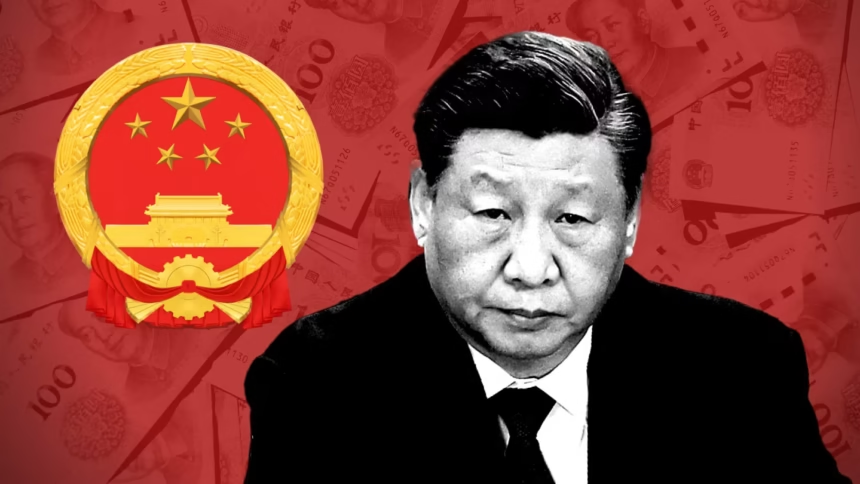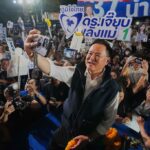BEIJING – The communist government of China has ramped up restrictions on public sector workers, now requiring even entry-level employees like primary teachers and nurses to turn in their passports to their employers.
This step, justified on the grounds of maintaining “discipline,” tightens state control over daily life and adds pressure on anyone with a government paycheque.
Alongside these internal rules, students from China who are studying abroad, especially in the UK, report increasing surveillance and harassment. Some students say state security officers have urged them to report on their peers and college activities, stirring concerns about freedom of speech and the global scope of Chinese government monitoring.
Passport Clampdown Hits Millions
The latest set of rules affects a huge number of public employees across China, from directors to frontline staff. The New York Times reports that workers like schoolteachers and hospital staff are being asked to give up their passports, meaning they can’t go abroad unless given permission.
Certain local authorities have raised the bar even higher, stopping groups of civil servants from eating out together in groups bigger than three, or telling them to hand over details on their social media and travel outside their city.
Wu Qiang, a political analyst from Beijing, explained that these moves are less about keeping order and more about blocking contact with the outside world. He points out that while the country continues to welcome investors and tourists, these laws reveal a more closed-off reality.
Implementation of these restrictions appears uneven. In Zhejiang province, for example, a nurse named Ms Zhu said her workplace demanded her passport, but other hospitals in the same area did not follow the same rule. This mixed approach leaves local officials to decide how to interpret and carry out the policy.
Limits stretch beyond travel. In provinces such as Guangdong and Liaoning, government jobs are now closed to people with strong overseas ties. In Shanghai, the police refuse applicants whose spouses or close relatives live abroad. The main reason, according to official sources, is to filter out possible loyalty problems and stop foreign spying.
For many, refusing to comply means losing steady earnings. Ms Zhu, who earns $27,000 a year (well above her city’s average), says giving up her passport was a personal loss, but one she accepted to keep her job. “If everyone has to do this, then at least I’m not alone,” she said.
Speech Tighter, Study Abroad Shrinks
These travel controls are part of broader efforts to clamp down on outside ideas and dissent. More and more, public employees are blocked from applying for studies overseas. In Guangdong, civil servants now have to be graduates of Chinese universities, shutting out those with foreign degrees or experience. State agencies have also begun to warn about the risks of foreign influence and outsider contacts, painting global travel as a threat.
Even top business leaders echo these concerns. Dong Mingzhu, who runs Gree Electric, recently said that her company would not hire graduates returning from abroad, claiming there was too much risk from spies. Her blunt comments spread quickly online and reflected the climate of fear around foreign ties.
China’s government has also stepped up efforts to control discussion on social media. The Cyberspace Administration of China recently pushed to crack down on slang and coded language, targeting speech meant to dodge censors.
People in Shanghai have even faced arrest for wearing Halloween costumes judged subversive. Artists and critics who speak out risk court cases or jail. Documentary filmmaker Chen Pinlin landed in detention for reporting on the White Paper protests of 2022.
Chinese Students Overseas Face Watchful Eyes
The state’s watch does not stop at the border. Human rights groups say that Chinese and Hong Kong students at universities in Europe and North America live with threats and surveillance for joining events seen as political.
Amnesty International’s 2024 report “On My Campus, I Am Afraid” describes how students at protests in Britain have been followed and filmed. Some of their families back in China have been warned by police to stop their children from causing embarrassment to the country.
Rowan, a Chinese student in the UK, told the Guardian that soon after she attended an event marking the Tiananmen anniversary, officials contacted her father and told him to stop her from making trouble. Of 32 students who spoke to Amnesty, about half said they were too scared to go home, and a few were now seeking asylum.
Allegations have also surfaced that Chinese students are sometimes pushed to spy on each other. A recent review by UK-China Transparency (UKCT) found cases where Chinese students confessed that police had told them to monitor campus events.
Reports of non-stop surveillance increase when students return to China, with some being brought in for questioning. Some teachers said that even visiting scholars hinted at the ever-present eyes of the state.
The Chinese Students and Scholars Association (CSSA), a group present at many universities worldwide, stands accused of reporting on students to state officials. In 2019, McMaster University in Canada banned its CSSA branch after it was found harassing Uyghur students on behalf of diplomats.
UK Universities Face Pressure
Academics in Britain say the problem goes deeper. According to a survey by UKCT, more than 60 percent of Chinese studies academics felt their institutions tiptoe around Beijing for fear of losing income from Chinese students. Some described being bullied by colleagues or diplomats and pressured to avoid topics like Xinjiang, Hong Kong, or the spread of COVID-19. This often leads teachers to skip over sensitive issues to avoid travel bans or risk to their families.
Concerns have also surfaced over Confucius Institutes, which run cultural programmes linked to the Chinese government. Some British academics accuse these centres of intimidation and censorship. The UK’s higher education regulator has warned it may take action under new free speech rules if such links threaten academic debate.
David Tobin, who teaches at the University of Sheffield, says such interference has a long history. He recalls a leading academic inviting Chinese consulate staff to the campus as far back as 2007, highlighting uncertainty over where academic independence ends and state influence begins.
Freedom Chilled at Home and Abroad
All these trends add up to a chilling climate for both public workers and students abroad. At home, stricter rules on passports and outside connections undo much of the country’s global engagement, despite promises of openness. Overseas, surveillance and fear of punishment drive students and scholars to stay quiet, with many steering clear of protests or sensitive debates so as not to risk their safety or that of their families.
Groups like Human Rights Watch and Amnesty International urge host countries and universities to protect students from these pressures. But since foreign students from China make up a large share of university income (for example, 69 percent of international tuition at UC Davis), schools often hesitate to provoke the Chinese government.
With these rules tightening on all sides, public employees and students face hard choices. Many choose to comply rather than risk their livelihood or safety. As one Chinese student in Britain told Amnesty, “On my campus, I am afraid.”














